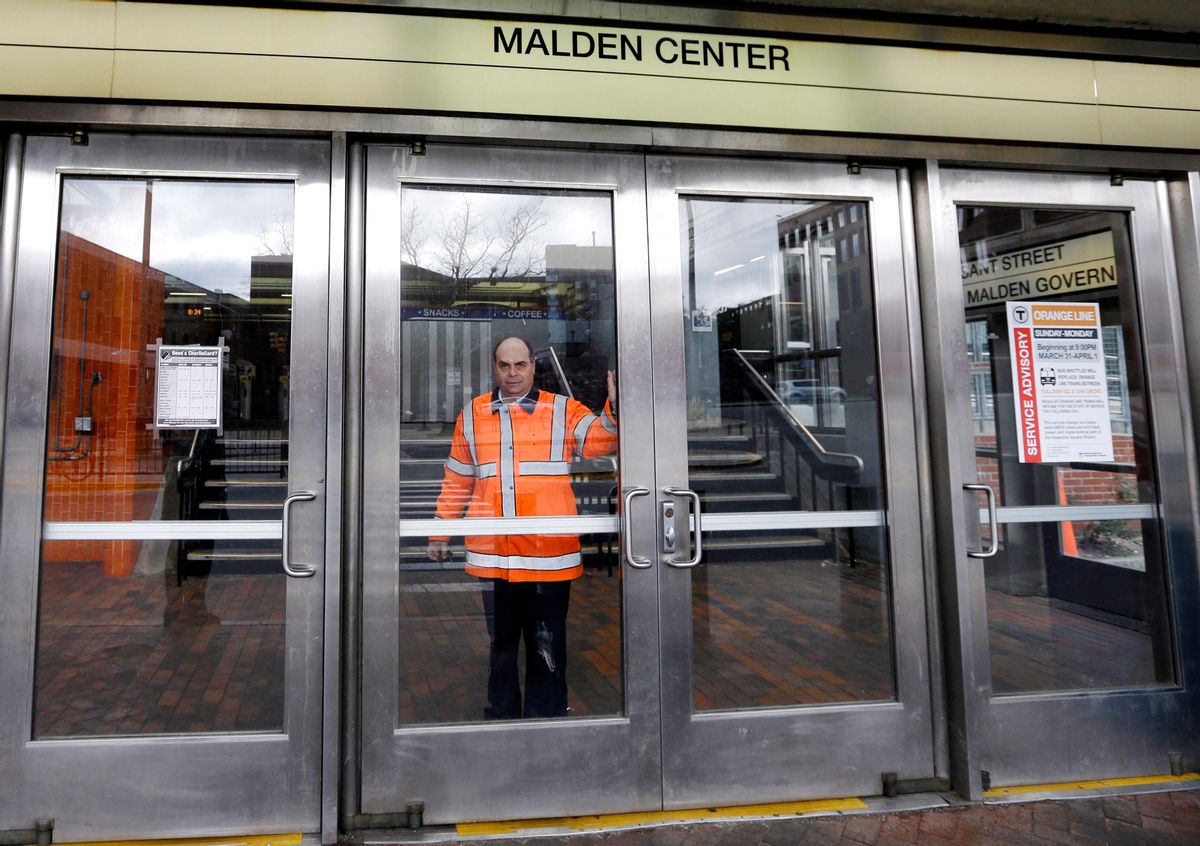As Boston became a ghost town Friday, most of the city's residents stayed home from work and got a unexpected day off. Most, but not all. While Starbucks and Subways shuttered, select Dunkin’ Donuts stayed open at the requests of law enforcement, earning deserved praise for the Boston-based chain. But while the chain was "encouraging our guests to stay home today," somebody had to come in to make the Dunkaccinos for the police officers, namely the low-wage workers who staff the stores.
And while they may have been happy to do come in despite the potential danger, eager to play whatever small part they could in the manhunt for someone who terrorized Boston, labor leaders say the case highlights how the bombing and its aftermath has affected workers in the Boston area this week.
"Most low wage workers can't afford to lose a day's pay, and there's no doubt this lockdown will adversely impact the city's working poor," said Jessica Kutch, a labor activist who co-founded the organizing site coworker.org, in an email to Salon. "I'd really like to see employers state on the record that their hourly workers will be paid for the time they were scheduled to work today -- but I suspect that most employers will place the burden of this shutdown squarely on the backs of people who can least afford it."
Some workers may be forced to use their paid time off or vacation time for Friday, labor activists fear. An employee of Boston Children's Hospital tweeted that HR was requiring employees to use their vacation time during the lockdown, but eventually backed down some internal pushback.
Meanwhile, even those with the protections of collective bargaining contracts have been strained this week.
Brian Lang, the President of UNITE HERE Local 26, told Salon that many of the hotel workers he represents have been working double shifts with little time off as the many of the guests have been unable to leave the city. Police from out of town have completely occupied some hotels, while authorities set up a command center at the Westin downtown, just blocks from the bombing.
"Those hotels were full of people all week, so our members in there were like the second responders," Lang said. "There were the first responders who aided the people who were directly affected by the bombings, but many of the folks who were affected were from out of town and they were staying at these hotels. They were exhausted, they were traumatized, and it was the hotel workers who comforted them, fed them, who made sure they had clean, safe rooms to say in."
One of the three victims who died was actually the daughter of a member of Local 26, who works in the Harvard University dining hall.
Meanwhile, the first responders themselves have been working around the clock, with nurses pulling 20 hour-shifts, Steven Tolman, the president of the Massachusetts AFL-CIO told Salon. "They're doing God's work," he said. "They're exhausted, they've been working constantly. The heroism of the people who were there and saw things that they never thought they'd see in their life is just incredible."
"It's justification why public employees are entitled to a decent pension and the best healthcare because they put so much on the line in a time of need," he said.



Shares